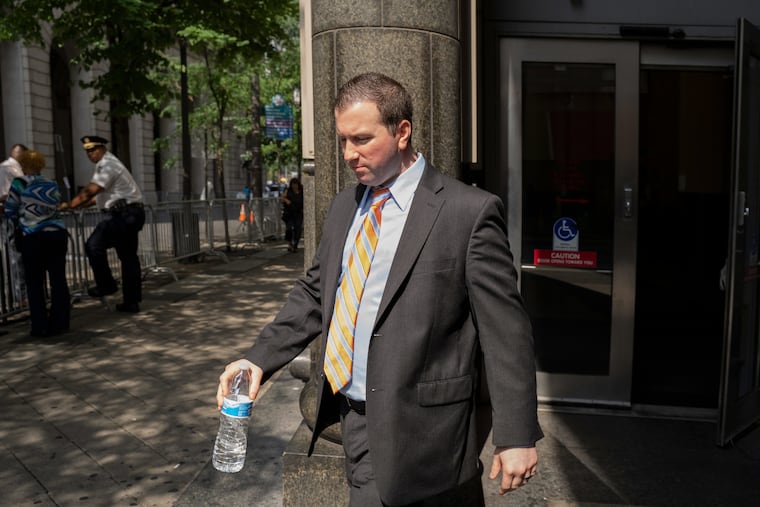Philly prosecutors want to redefine when police can legally shoot. It’s now up to the Pa. Supreme Court
Pennsylvania’s Supreme Court justices had no shortage of questions during oral arguments over the issue Tuesday. What they did not do is signal which way they may rule — or when.

In an unusual hearing Tuesday involving the first Philadelphia police officer charged with murder in two decades, Pennsylvania’s Supreme Court justices had no shortage of questions.
They asked how or whether it was appropriate for them to potentially change the state law governing when police can use deadly force — a statute written and approved by the legislature. They questioned why city prosecutors were seeking to have part of that law thrown out now, before the former officer, Ryan Pownall, has even gone to trial. And they debated whether it would be fair or legal to retroactively apply any new standard to Pownall, who was charged years before any potential change to the statute.
What the justices did not do is signal which way they may rule — or when.
At issue is a request by the District Attorney’s Office to toss part of the state law outlining when police officers can fire their guns. Prosecutors believe some of the statute violates the U.S. Constitution. They want a ruling on the issue before Pownall, 39, is tried on third-degree murder and related counts for fatally shooting David Jones during a June 2017 traffic stop.
Pownall — who was fired months after the shooting, his second during a 12-year career on the force — remains free on $500,000 bail. His potential trial date remains in limbo as the appeal issues are being litigated.
During oral arguments Tuesday in a Philadelphia courtroom, the justices directed sharp questions toward prosecutor Matthew Davis, as well as lawyers for Pownall.
Prosecutors have said they believe Pownall is likely to defend himself by citing the part of the state law they believe is unconstitutional: a clause that says officers can shoot to prevent the escape of a fleeing felon.
Davis told the justices that although he did not want them to “rewrite the statute,” he did believe they could declare parts of it unconstitutional, or otherwise deliver a ruling that would ensure it not be used in an unconstitutional fashion during a criminal case.
The justices did not make clear how they’d consider that request.
Pownall’s attorneys — led by Charles M. Gibbs — said they believed the state’s use-of-force law was constitutional, that prosecutors were seeking a change to bolster their own prospects at trial, and that the justices shouldn’t be considering the DA’s requests at this stage of the proceedings.
“We don’t get to bypass the rules in order to help the Commonwealth meet its burden of proof,” Gibbs said.
Justices asked Gibbs why they should not be able to determine the constitutionality of a potentially problematic state law. And they wondered if Pownall would want to know whether the statute was unconstitutional, even if they weren’t sure that any new standard could retroactively apply in his case.
The justices did not say when they might issue a ruling in the case, except to say it would not be before the end of the year.